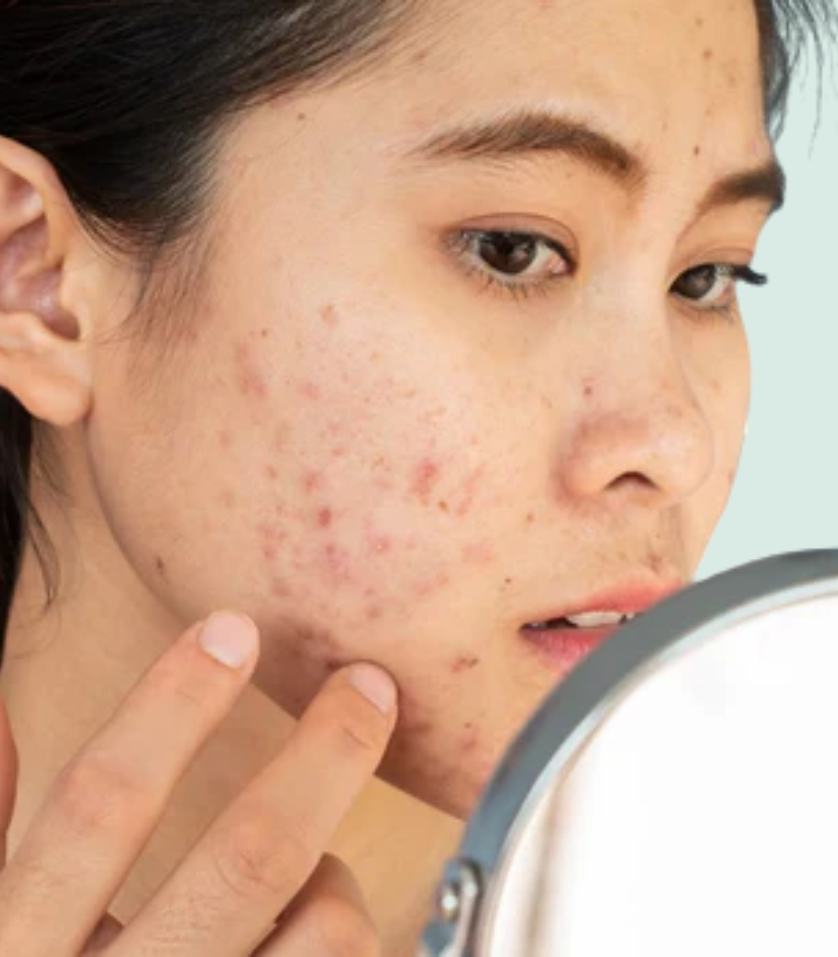
Causes of Acne
When we were teenagers, acne was a fact of life. If you didn’t have at least one day when you were fumbling around your locker looking for concealer, you were a lucky teen, indeed.
But what about when you experience acne in your 30s or your 40s?
Wait a second, I thought I was done with this!
As frustrating as it is, adult acne is actually extremely common. According to one study, as much as 22% of women in the United States experience acne, while men make up only 3%.
And while some women are lucky enough to find that “miracle product” for their skin, it simply doesn’t work like that for everyone.
There are a number of reasons why you’re experiencing acne in your adult life, and we want you to know that it’s not because you have poor hygiene, and it’s not your fault.
If you’re experiencing persistent acne, consulting your doctor or dermatologist is always the best course of action. However, it may be possible that a lifestyle factor is the cause of your acne, meaning it could be something you have control over.
Common Causes Of Acne
Let's discuss common acne causes and how to regain your skin's clarity!
Remember: Clearing skin takes time, but it's valuable to progress gradually and learn your skin's future responses.
 Hormonal Changes
Hormonal Changes
If you’re experiencing blemishes along the jawline that are deep and feel sore to the touch, it’s very possible that you’re experiencing hormonal acne.
Hormonal acne occurs when there’s an increase in androgens in the body, leading to the sebaceous glands producing more sebum and the pores increasing in size. And while hormonal acne is often associated with adolescence, women can experience it well into their 30s and 40s.
It’s normal for anyone to experience hormonal acne, but if you’re experiencing it frequently, it’s heavily encouraged to consult your doctor or dermatologist. Consulting a professional can uncover your hormonal imbalance's source. Medications like birth control or prescription retinol might effectively address it.
You’re Over-Washing Your Face
In the past, people believed that maintaining a clean face was crucial to prevent acne, and they would blame insufficient washing if acne was present.
However, this is actually not true; in fact, over-washing your face can strip your skin of the natural oils that keep it healthy and hydrated. And when your skin becomes stripped, this can actually cause the oil glands to kick into overtime, resulting in excess oil and clogged pores.
Diet
During your teenage years, you might have received warnings that chocolate could cause acne.
While not entirely accurate, studies suggest specific foods, especially carb-rich ones like bagels, bread, and chips, might exacerbate acne.
And while the research is limited, it has been suggested that dairy may induce acne in some individuals. Mucous-producing foods, like this one, can strain digestion, especially for lactose-intolerant individuals, potentially triggering cystic acne.
Suspect dietary link to acne? Skip the food in question to gauge impact on skin. Experiment wisely. Remember: while your acne may not immediately clear up, it’s still a good sign if it doesn’t worsen!
Stress
 If you’ve been feeling extra stressed out lately, stress may be behind your worsening breakouts.
If you’ve been feeling extra stressed out lately, stress may be behind your worsening breakouts.
While stress isn’t necessarily a direct cause of acne, it certainly isn’t helping it.
Research indicates stress delays wound healing, including acne recovery. Prioritize relaxation for healthier skin. When pimples heal slowly, they remain on the skin longer, risking the chance of only getting worse.
Handling stress isn't simple—during big projects or life changes like moving, feeling overwhelmed is natural.
But during these times, practicing stress management strategies can be extremely helpful. Prioritize self-care during stress: meditate, exercise, indulge in hobbies. Ensure ample sleep. Your well-being matters.
When in doubt, talk to your physician. The team at Emani is all about helping others to live a healthier and happier life. Leave a comment, we'd love to hear from you.






